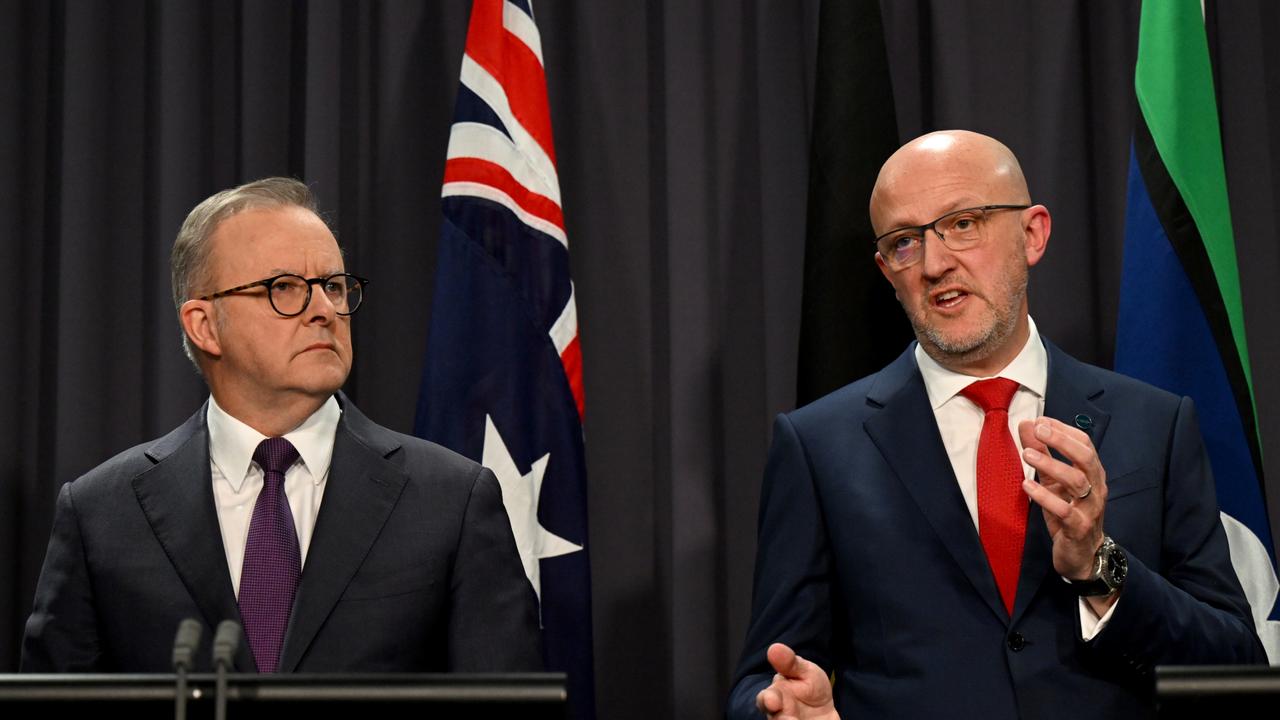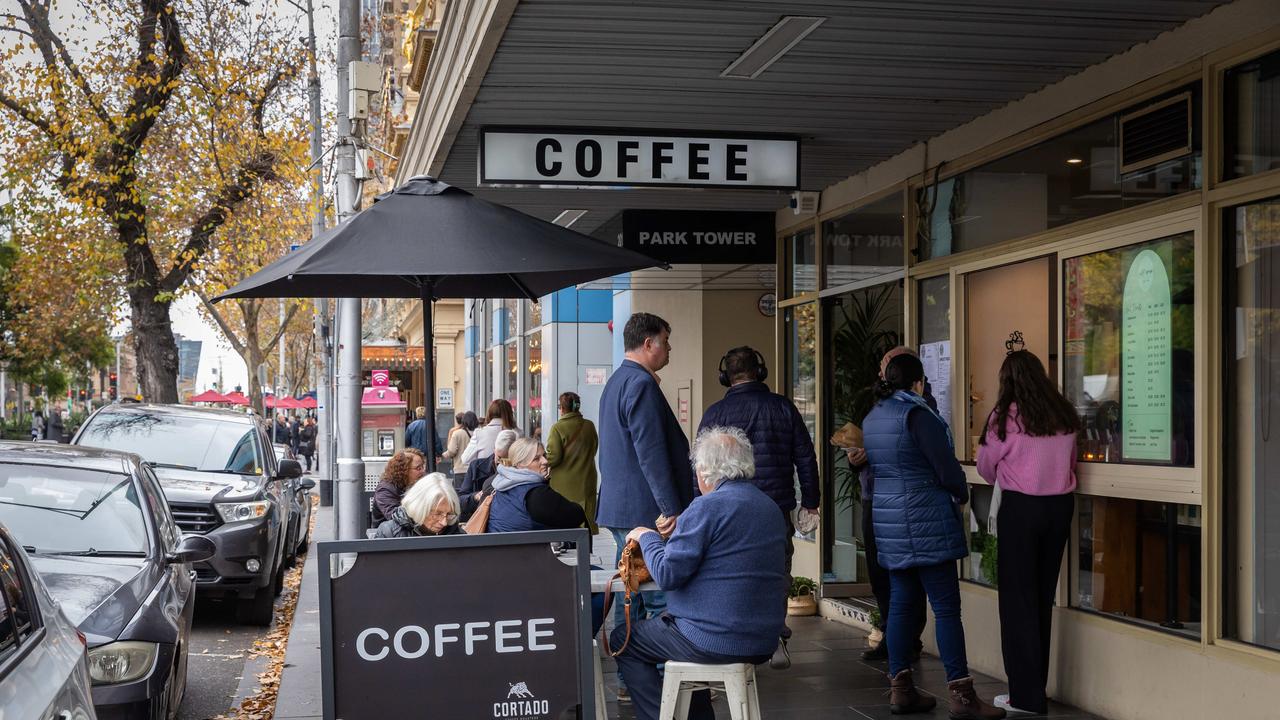Woe to the fools that continued to vote in Labor.
The day of reckoning is coming fast.
theaustralian.com.au
The ‘killer blows’ hurtling towards Victoria and the entire economy
Robert Gottliebsen
The state government mismanagement of Victoria has been a national joke for some years, particularly in Canberra.
A bad situation in our second-largest state by population now looks set to become much worse and will seriously impact the national economy. If it develops as expected, it will make the Reserve Bank’s task of guiding the economy extremely difficult because a major part of Australia will be different to the rest.
The first of the ‘killer blows’ to hit the state is industrial gas rationing which will be followed by much higher power prices, and is driven solely by Victorian government incompetence. But, the second – the smashing of its
tertiary education industry which could turn the greater Melbourne CBD into a ghetto-like ‘no-go’ area – has being devised and will be implemented mainly by the Albanese government.

Anthony Albanese and ASIO director-general Mike Burgess speak during a press conference at Parliament House in Canberra. Picture: Lukas Coch/AAP Image
To its great credit the local press, including The Age and Herald Sun, have done a wonderful job exposing the links between organised crime,
the CFMEU and the funding of the state ALP but have yet to alert the state of the two looming ‘killer blows’ and correctly allocating the blame.
The impact of the two blows will be made doubly serious by Victoria’s rampant and reckless borrowing, which has left the state in a situation where it is in desperate need of strong revenue.
The ‘killer blows’ could see many high taxpayers and enterprises leave the state, reducing the revenue base.
Victoria cannot afford to seriously shrink its natural gas-using industries or its extensive university structures. Yet, both are set to be crippled.
Victoria has up to 10,000 businesses which depend on gas, and they add almost $10bn to the local community, contributing more than $3bn in state revenue.
Most of those businesses face the high likelihood of periodic gas rationing next year because the burden of gas shortages will be borne by business (and their employees) and not consumers.
Alarmed by the alerts from the national energy regulators, the Victorian industry bodies asked 500 Victorian businesses which depend on gas for fuel what they would do if they were subject to gas rationing. One in five enterprises said they would go offshore or close permanently.

Gillott Espresso, run by Nupur Bakshi and Prateek Arora, in Spring Street, Melbourne. Picture: Jason Edwards
A big majority of the rest said they would slash their operations and their work force.
The state cannot afford the revenue reduction, which will be made worse by the unsustainable payroll and property taxes, which have been imposed to cover the existing revenue shortfalls.
On payroll tax, the government announced the tax-free threshold would be increased from $700,000 to $900,000. But, it did not highlight the fact the threshold would diminish once payrolls passed $3m.
So, for a business employing 50 staff with a payroll of around $4.8m the tax bill goes up by $30,000. It’s not sustainable.
The Australian government now knows
Victoria not only has the immense gas reserves I have been highlighting for years, but there are additional onshore reserves just as big.
The government had plenty of warning gas supply cuts were inevitable, but energy and resources minister Lily D’Ambrosio has constantly blocked development of Victoria’s immense reserves and appears to rank the state’s financial and employment issues a distant second to other agendas.
Premier Jacinta Allan has been fully briefed on the looming energy crisis and its impact on the state, but is not strong enough to overshadow the immense ALP power of D’Ambrosio.
Victorian Premier Jacinta Allan during a press conference outside a housing conference in Melbourne along with Jeroen Weimar, who is heading up the governments housing policy. Picture: David Crosling
Treasurer Tim Pallas has been desperately trying to take advantage of the Japanese offer to process Victorian brown coal and export it in briquette form. But, the power of D’Ambrosio is again too great.
Victoria is now relying on onshore wind generation to reduce dependence on coal and gas for power generation.
But, as often happens, in recent times the wind has not been blowing, causing a massive increase in gas consumption for power generation.
So far this year, the state has used 67 per cent more gas than the energy regulator had forecast for the whole of 2024.
The reserves held for demand fluctuations are down to 10 days worth.
The ageing brown coal generators are being forced to produce flat-out, with Victoria’s emission rate now way beyond anything anyone forecast.
D’Ambrosio has responded with tenders to establish
wind generators in the Bass Strait, which will be incredibly expensive and saddle the state with much higher power prices for a generation or two.
If the energy minister was given another portfolio and Victoria immediately started to work on its gas reserves, it would take two more years to get its gas to market.
Immense gas reserves are being developed in the Northern Territory and the pipelines are being adjusted and expanded to take the gas south, but, by the time the gas reaches Victoria it will be too late and naturally will be much more expensive.
It would seem the premier cannot politically take action to replace D’Ambrosio until the crisis has actually taken place.
When it comes to the education ‘killer blow’, big parts of the greater Melbourne CBD revolve around the University of Melbourne and RMIT.
Both are set to be forced by the Albanese government to slash their numbers of overseas students, which are essential to their current financial viability.
As I pointed out last month this will impact medical research, but the impact on the Melbourne CBD will be even greater because in addition to the top universities, the institutions providing lesser qualifications are also being slashed by the federal government.
Melbourne has one of Australia’s best student accommodation networks. It has been specifically designed for the sector and injects vibrancy into the CBD.
Student accommodation at the University of Melbourne. Picture: Andrew Henshaw/NCA NewsWire
The forced tertiary education slashing will require substantial staff retrenchments and leave vast areas of student accommodation empty and/or replaced by social housing not necessarily compatible with student accommodation.
In many cities overseas when such a trauma has taken place ‘no-go’ areas develop which, if it comes to pass in the Melbourne CBD, could conceivably threaten the existence of both universities.
Combine this with the union-dominated Victorian government being prepared to accept much lower productivity via working from home freedom, the CBD of Melbourne is in danger of being greatly challenged as a safe venue for arts and dining.
Victorians have only themselves to blame for electing the now-retired Daniel Andrews as premier for a third term, but the potential destruction of Melbourne’s CBD partly rests on Anthony Albanese.




